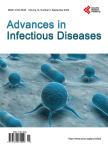Do Protease Inhibitors Increase Preterm Births in Human Immunodeficiency Virus-Infected Patients?
Do Protease Inhibitors Increase Preterm Births in Human Immunodeficiency Virus-Infected Patients?作者机构:Department of Obstetrics Gynecology and Women’s Health UMDNJ-New Jersey Medical School Newark USA
出 版 物:《Advances in Infectious Diseases》 (传染病进展(英文))
年 卷 期:2013年第3卷第3期
页 面:172-176页
学科分类:1002[医学-临床医学] 100201[医学-内科学(含:心血管病、血液病、呼吸系病、消化系病、内分泌与代谢病、肾病、风湿病、传染病)] 10[医学]
主 题:HIV Pregnancy Preterm Birth Protease Inhibitors
摘 要:Objective: To compare preterm delivery (PTD) rates in HIV-infected patients on a protease inhibitor (PI)-based and a PI-sparing regimen. Study Design: This is a retrospective review of records of HIV-infected pregnant women between 2000 and 2007 at University Hospital, Newark, NJ. Patients were grouped according to PI exposure during pregnancy. Rates of preterm birth were compared, and the analysis was performed irrespectively of the etiology or indication of the preterm birth. Multivariate analysis including substance use, PI use, initial CD4 count, and history of PTD was performed. Results: There were 129 pregnant women in the PI group and 59 in the PI-sparing group. The PTD rate did not differ between the PI group and PI-sparing group (27.9% vs 25.4%, P = 0.72). 28.6% of those who delivered preterm had a previous PTD compared to 8.4% of those who delivered at term (P = 0.0019). Patients who delivered preterm had a higher rate of substance use (37.3% vs 19.7%, P = 0.0128). In the multivariate analysis, only history of PTD was significant (P = 0.018). Conclusion: Contrary to other studies, PIs were not associated with PTD. Other known risk factors of PTD, specifically past PTD and substance use, should be considered and targeted for risk reduction during pregnancy.



